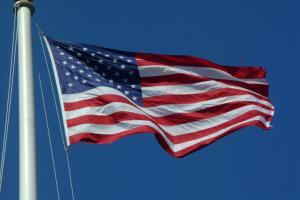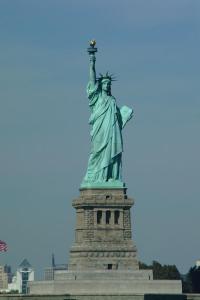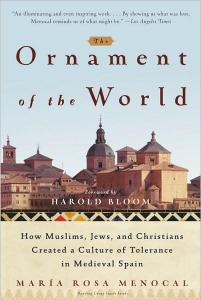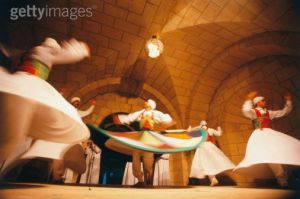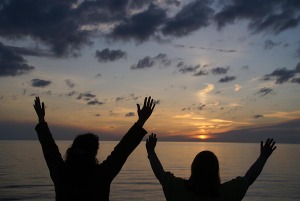EMPATHY IN A WORLD OF SYMPATHY
Recently, I was asked to say a few words on the topic of “empathy in action” as much of what I do involved listening to people in an open and caring way. Here is some of what I said, and some of what I didn’t have the time to say, in the time alloted to me:
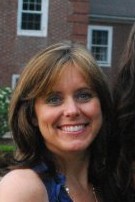 “When I was asked to speak today, to give “a testimony on empathy”, it was framed at first as perhaps talking about my dual roles here as the communications and membership staffer who also serves as a lay pastoral care minister, and how being a good listener plays into those roles. I immediately laughed, because you see, I do not consider myself a very good listener. In my great enthusiasm to connect with you or what you’ve said, I can sometimes miss the nuances. I hear the content…but in my common state of exuberance and haste, I can miss hearing you, you know the real you, the YOU that really matters behind the words. As a matter of fact, that I’m standing up here talking on the subject, to me, reveals God’s great sense of humor and irony.
“When I was asked to speak today, to give “a testimony on empathy”, it was framed at first as perhaps talking about my dual roles here as the communications and membership staffer who also serves as a lay pastoral care minister, and how being a good listener plays into those roles. I immediately laughed, because you see, I do not consider myself a very good listener. In my great enthusiasm to connect with you or what you’ve said, I can sometimes miss the nuances. I hear the content…but in my common state of exuberance and haste, I can miss hearing you, you know the real you, the YOU that really matters behind the words. As a matter of fact, that I’m standing up here talking on the subject, to me, reveals God’s great sense of humor and irony.
But what I can say, is that I have been trying the last several years, to the best of my ability, to earnestly develop this talent, this talent of active listening, engaging my body and all my sense, to in essence, absorb what you’re experiencing. This is what empathy means to me and it is really unnatural to my constitution. Yet is has become a conscious and deliberate spiritual practice because there is really no greater gift to give someone, than your full presence. Not ever. Isn’t it hard to not speak or not attempt to smooth things over when something horrible is happening in someone’s life? It is hard work to simply be with someone else’s pain, not asking them to feel better or saying it’s going to be alright. Sometimes it’s enough, to just look a person in the eye, and say, “This really sucks.” And then nothing.
But not nothing. That I am willing to stand with you, sit with you, be uncomfortable, and not judge anything that comes out of your mouth because your feelings are just having their way, that is empathy.
 Ever sine I’ve made this commitment, weird things have been happening to me. I was at the drugstore a while back, looking at birthday cards. A women, ostensibly also looking for a birthday card for her daughter, started to tell me of how she is trying to decide whether to divorce her husband. She has been with him since she was 15 in Brazil, and he is like a father to her, as well as a husband, as her own father had died when she was seven. She has been married for 25 years and he has always made her feel special, but he has violated her trust in an unspeakable way with a child family member. I didn’t know what to with this. So I just walked over to her and hugged her and she cried. I said I didn’t have any answers but that I trusted that she would have the courage to find her answer.
Ever sine I’ve made this commitment, weird things have been happening to me. I was at the drugstore a while back, looking at birthday cards. A women, ostensibly also looking for a birthday card for her daughter, started to tell me of how she is trying to decide whether to divorce her husband. She has been with him since she was 15 in Brazil, and he is like a father to her, as well as a husband, as her own father had died when she was seven. She has been married for 25 years and he has always made her feel special, but he has violated her trust in an unspeakable way with a child family member. I didn’t know what to with this. So I just walked over to her and hugged her and she cried. I said I didn’t have any answers but that I trusted that she would have the courage to find her answer.
To emphasize with someone involves getting involved. It means that I am you, and you are me. I say thing because a lot of people confuse sympathy and empathy. You will never get a sympathy card from me. You will get a hand written note on blank stationary or one with a poignant quote that resonates somehow, but never one that reads with sympathy. Sympathy, implies that I can kind of (similarly) understand what you are going though and I feel bad for you. Empathy means I am attempting to the best of my ability to be in the trenches with you.
 Please know that I am not saying that in all situations to simply say wow, this is really awful, I feel your pain, is the appropriate response. We hear of the devastating earthquake in Haiti, no even a year ago (200,000) dead and we are shocked. Then they have a tropical storm and there’s more hardship. Now there is an outbreak of cholera sweeping the country, an epidemic from which they have no immunity. Having pity does nothing. Praying for them is a step up, but still does not serve them. Empathy sometimes needs feet and arms and alms. It needs to mobilize doctors, nurses, food stuff, and medicine. It is active listening AND action.
Please know that I am not saying that in all situations to simply say wow, this is really awful, I feel your pain, is the appropriate response. We hear of the devastating earthquake in Haiti, no even a year ago (200,000) dead and we are shocked. Then they have a tropical storm and there’s more hardship. Now there is an outbreak of cholera sweeping the country, an epidemic from which they have no immunity. Having pity does nothing. Praying for them is a step up, but still does not serve them. Empathy sometimes needs feet and arms and alms. It needs to mobilize doctors, nurses, food stuff, and medicine. It is active listening AND action.
This commitment to radical acceptance listening (which I still stumble at, at any given moment), has given me the blessing to get know some of you and know your stories. It is a rare gift to share the deepest and sometimes darkest nights of another’s soul. With empathy, we come to know how strong the spirit is, how incredibly resilient we humans are, even after our losses, how being heard allows us to move through and forward in our lives, touching the lives around us.







